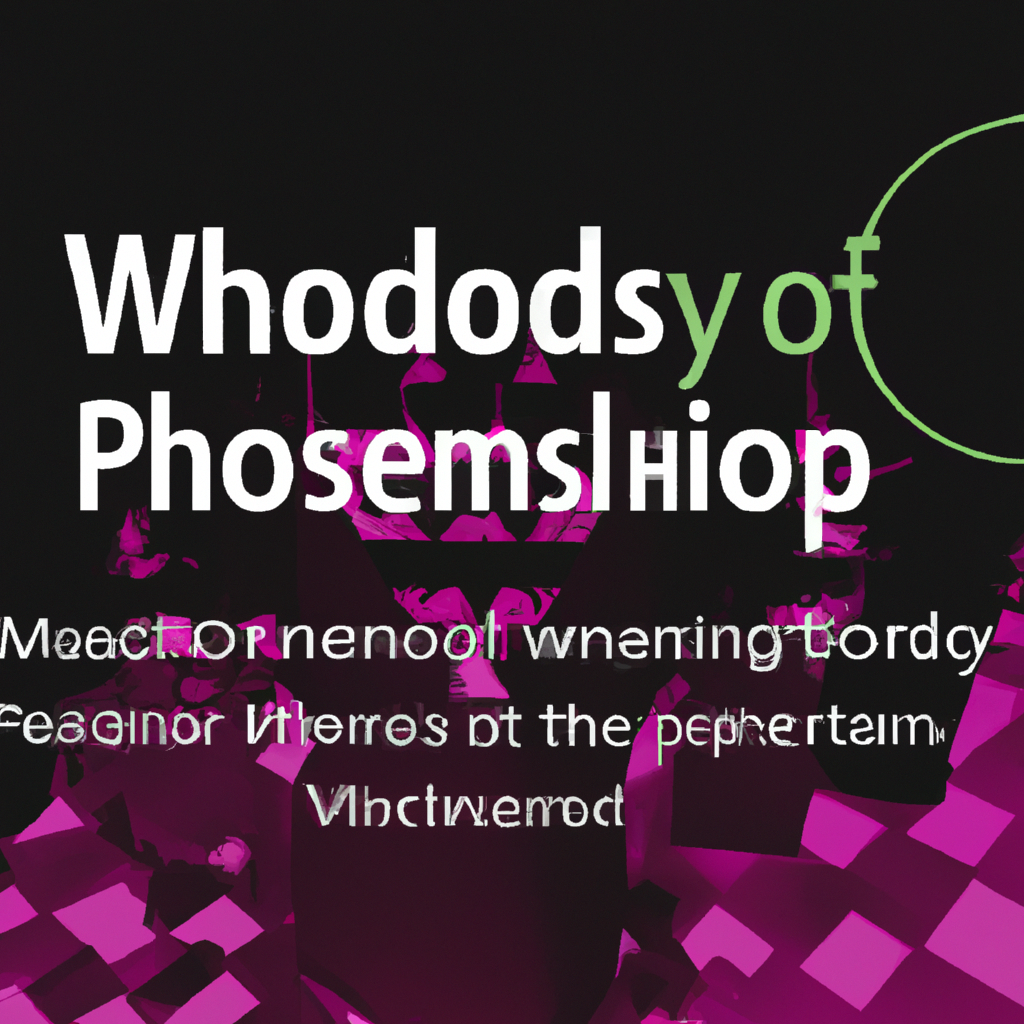Imagine yourself in a place of worship, surrounded by fellow believers, and as the music begins to play, you are instantly transported into a state of joyful reverence. Have you ever wondered how these worship melodies are inspired? Well, look no further, for in this article we will explore the transformative power of worship songs directly taken from Bible verses. Let’s take a closer look at some specific Psalms – Psalm 108:3, Psalm 147:1, and Psalm 42:11 – and discover the profound impact they have in igniting our spirits and drawing us closer to the Creator. Get ready to be captivated by the depth and beauty of these melodious expressions of praise and adoration.

The Power of Psalms in Worship Songs
In the realm of worship, the use of psalms holds an incredible significance. Psalms, with their poetic rhythm and profound messages, have been an integral part of worship throughout history. They evoke powerful emotions, provide spiritual guidance, and offer a platform for believers to connect with God on a deep, personal level.
The Importance of Psalms in Worship
Psalms play a crucial role in worship by allowing individuals to express their deepest emotions before God. These sacred songs cover a wide range of themes, including praise, thanksgiving, lamentation, and supplication. Through the psalms, worshippers can find solace, seek forgiveness, express gratitude, and offer their heartfelt adoration to the Almighty.
Moreover, the power of psalms lies in their ability to resonate with the human experience. They address universal human emotions, struggles, and joys, making them relevant and relatable to people of all cultures and backgrounds. The words of the psalms serve as a mirror to our souls, reflecting our deepest yearnings and desires, and helping us navigate through the highs and lows of life.
The Role of Psalms in Biblical History
Throughout the Bible, we witness the significant role that psalms played in the lives of the Israelites. David, the famed king and psalmist, composed many of the psalms, which reflected his experiences, emotions, and deep faith in God. These sacred songs were not only recited in private devotion but were also sung during important religious ceremonies and festivals.
The psalms had a special place in the worship practices of the ancient Israelites. They offered solace during times of distress, served as expressions of gratitude for God’s blessings, and were shared communally to celebrate His faithfulness. Psalms were sung in the temple, praising God for His goodness and seeking His guidance. They were a way for the people to connect with their Creator and acknowledge His sovereignty over their lives.
The Impact of Psalms in Modern Worship
In our modern times, the influence of psalms in worship is still profound. Churches and worship communities around the world incorporate psalms into their liturgies, sermons, and songs. The timeless messages and poetic beauty of the psalms continue to captivate hearts and minds, touching the deepest parts of our souls.
One of the most powerful ways in which psalms have impacted modern worship is through the creation of worship melodies. By setting the words of the psalms to music, worship leaders and musicians have been able to breathe new life into these ancient texts. Through the power of melody, psalms come alive, resonating with worshippers in a unique and profound way.
Exploring the Psalms: Psalm 108:3
Understanding the Context of Psalm 108:3
Psalm 108:3 is a verse that is rich in both historical and cultural context. It is attributed to King David and is a part of a larger psalm that expresses David’s desire to praise God among the nations and give thanks to Him for His faithfulness. David’s words in this psalm convey a deep longing to proclaim God’s glory and share His greatness with the world.
To truly understand the context of Psalm 108:3, it is important to consider the historical background of David’s life. David, a shepherd-turned-king, faced numerous challenges and triumphs throughout his reign. He experienced God’s faithfulness firsthand and was moved to worship and praise Him with all of his being.
Interpreting the Meaning of Psalm 108:3
At its core, Psalm 108:3 urges believers to proclaim God’s glory among the nations. It is a call to worship that extends beyond the boundaries of one’s own community or culture. This verse encourages worshippers to recognize and declare the greatness of God to the entire world, inviting all people to join in praise and adoration.
To interpret the meaning of Psalm 108:3, it is essential to grasp the universal nature of worship. It reminds us that worship is not meant to be confined to our personal preferences or cultural expressions. Instead, it calls us to embrace diversity and inclusivity in our worship, recognizing that God’s glory is meant to be proclaimed and celebrated among all nations and peoples.
Finding Inspiration in Psalm 108:3 for Worship Melodies
The words of Psalm 108:3 provide a powerful inspiration for crafting worship melodies that resonate with the hearts of believers. They affirm the importance of celebrating God’s greatness not only within our own communities but also in the wider context of the world. Worship melodies based on Psalm 108:3 can serve as a catalyst for a spirit of unity and a desire to share the love of God with all people.
When composing worship melodies inspired by Psalm 108:3, musicians can incorporate elements that reflect the diversity of cultures and languages. They can explore different musical styles, rhythms, and instruments to create a harmonious blend that represents the beauty of God’s creation. These melodies can then be sung with passion, inviting worshippers to participate in declaring the glory of God among the nations.

Unpacking the Psalms: Psalm 147:1
Examining the Background of Psalm 147:1
Psalm 147:1 is a psalm of praise that radiates with joy and gratitude. It is a composition attributed to the psalmist who urges the community to praise the Lord for His goodness and the rebuilding of Jerusalem. This psalm is a part of a collection that focuses on the restoration and redemption of God’s chosen people.
To gain a deeper understanding of Psalm 147:1, it is crucial to explore the historical context surrounding its composition. This psalm was likely written during the time when Jerusalem was being rebuilt after its destruction. The psalmist rejoices in the restoration of the city and acknowledges God’s hand in bringing about this renewal.
Decoding the Message of Psalm 147:1
At its core, Psalm 147:1 calls believers to praise the Lord for His goodness and faithfulness. It is an exhortation to recognize and express gratitude for the remarkable works of God. This verse serves as a reminder that our praise and adoration should be directed towards the One who deserves it all.
To decode the message of Psalm 147:1, we need to understand the power of gratitude in our worship. It reminds us of the importance of looking beyond our circumstances and focusing on the goodness of God. When we shift our perspective to praise and thanksgiving, we open our hearts to experience the transformative power of worship.
Crafting Worship Melodies Based on Psalm 147:1
Crafting worship melodies based on Psalm 147:1 allows us to creatively express our gratitude and joy. These melodies can be joyful and exuberant, reflecting the sense of celebration and triumph found in the psalm. Musicians can use lively and uplifting tunes, incorporating harmonies and rhythms that evoke a sense of joy and vitality.
Moreover, worship melodies inspired by Psalm 147:1 can highlight the redemptive work of God in our lives and communities. They can be a reminder of His faithfulness and love, leading us into a spirit of praise and adoration. These melodies can be sung with enthusiasm and passion, inviting worshippers to join in the joyful proclamation of God’s goodness.
Delving into the Psalms: Psalm 42:11
Contextualizing Psalm 42:11
Psalm 42:11 is a powerful psalm that voices the psalmist’s longing for a deeper connection with God. It portrays a sense of spiritual thirst and yearning, as the psalmist seeks solace and hope in the midst of distress. This psalm is deeply relatable for individuals who have experienced seasons of spiritual longing and desolation.
To truly contextualize Psalm 42:11, it is essential to understand the emotional state of the psalmist. The writer of this psalm was going through a period of intense longing and discouragement. He felt distant from God and his circumstances left him feeling overwhelmed. Despite the challenges, the psalmist clung to the hope of encountering God, finding strength in Him, and praising Him in the midst of affliction.
Uncovering the Significance of Psalm 42:11
Psalm 42:11 holds great significance as it reminds believers to trust in God’s unfailing love and hope in His deliverance, even in the midst of difficult circumstances. It serves as a powerful reminder that praise and worship are not reserved only for times of ease and prosperity. Instead, we are called to worship God wholeheartedly, even in the darkest valleys of life.
Uncovering the significance of Psalm 42:11 also leads us to reflect on the transformative power of worship. It is through the act of worship that we can find solace, draw near to God, and experience His comfort. This verse encourages believers to lift up their voices in praise, even when facing trials and tribulations, as a way to connect with God and find renewed strength.
Creating Worship Melodies Reflecting Psalm 42:11
Creating worship melodies that reflect the essence of Psalm 42:11 requires a delicate balance of vulnerability and hope. These melodies should capture the yearning and longing expressed in the psalm, conveying a sense of raw emotion that resonates with the hearts of worshippers. They can be slow and contemplative, allowing for moments of reflection and introspection.
At the same time, these worship melodies should also carry a sense of hope and assurance. They should remind worshippers of God’s unwavering love and faithfulness, even in the midst of despair. Musicians can incorporate uplifting choruses or refrains that emphasize the promises of God and the comfort found in His presence.

The Role of Melodies in Worship
How Melodies Enhance Worship Experience
Melodies are an integral part of worship as they enhance the overall worship experience. They have the power to uplift the soul, evoke deep emotions, and create a sense of transcendence. Melodies have a unique way of resonating with our hearts and minds, allowing us to connect with God on a profound level.
One of the ways in which melodies enhance the worship experience is by creating an atmosphere of reverence and awe. When we hear a beautiful melody, we are drawn into the presence of God, our hearts stirred to respond in worship. Melodies can serve as a vessel for the Spirit to move and speak to our innermost being, helping us encounter the divine in a tangible way.
Melodies as Vehicles for Spiritual Expression
Melodies serve as vehicles for spiritual expression, enabling us to communicate the depths of our emotions and experiences with God. They allow us to express our joys, sorrows, praises, and prayers in a way that goes beyond mere words. Melodies can capture the essence of our relationship with God, providing a language for our souls to commune with the Divine.
Furthermore, melodies have the power to unite believers in worship. They transcend language and cultural barriers, creating a sense of unity among diverse worshipers. Whether through traditional hymns or contemporary worship songs, melodies have the ability to bring people together, allowing them to worship as one body.
The Power of Melodies in Connecting with God
Melodies have a unique power to connect us with God. They can take us to a place of deep intimacy and communion with the Divine. When we engage in worship through melody, we open ourselves to a profound encounter with God’s presence.
Through the power of melodies, we can experience God’s love, peace, and healing in a tangible way. Melodies have the ability to touch our hearts, soothe our spirits, and awaken our souls to the reality of God’s goodness and grace. They bridge the gap between the human and the divine, allowing us to enter into a sacred space of worship and adoration.
The Process of Creating Worship Melodies from Psalms
Selecting Appropriate Psalms for Musical Adaptation
The process of creating worship melodies from psalms begins with the selection of appropriate psalms for musical adaptation. Not every psalm lends itself well to musical expression, so it is important to choose those that have a clear theme, a compelling message, and a melodic quality.
When selecting psalms for musical adaptation, it is essential to consider the intended purpose of the worship melody. Whether it is for praise, confession, or lament, the psalm chosen should align with the overall theme and focus of the worship service. Additionally, the selected psalms should resonate with the desires and needs of the worshiping community, providing a voice for their spiritual expression.
Understanding the Message and Theme of the Psalm
Once the appropriate psalms have been selected, the next step is to understand the message and theme of the chosen psalm. This involves a careful study of the text, considering its historical and cultural context, as well as its spiritual implications. It is important to grasp the intended meaning of the psalm and the emotions it evokes in order to effectively translate it into a worship melody.
Understanding the message and theme of the psalm also requires discerning the key elements and motifs within the text. This includes identifying recurring imagery, expressions of praise or lament, and central theological concepts. By gaining a comprehensive understanding of the psalm, musicians can craft melodies that organically flow from the essence and spirit of the text.
Setting the Words to Music: Techniques and Considerations
Setting the words of the psalm to music is a delicate process that requires careful consideration of the melodic structure and musical elements. Musicians must find a balance between preserving the integrity of the psalm’s words and creating a melody that is compelling and accessible to the worshiping community.
Techniques such as repetition, variation, and harmonic choices can be employed to enhance the musicality and emotional impact of the worship melody. When setting the words to music, it is important to consider the natural rhythm and cadence of the psalm, allowing the melody to flow in a way that is pleasing to the ear and facilitates congregational participation.
Additionally, consideration should be given to the musical arrangement and instrumentation that best suit the chosen psalm. The use of different instruments, vocal harmonies, and dynamic changes can further enhance the worship melody, creating a richer and more immersive worship experience.

Challenges and Rewards of Creating Worship Melodies from Psalms
Maintaining the Integrity of the Psalm’s Message
One of the significant challenges in creating worship melodies from psalms is maintaining the integrity of the psalm’s message. It is essential to ensure that the melody accurately reflects the spirit and intent of the original text. This requires a deep understanding of the psalm and a commitment to preserving its inherent meaning and theological significance.
While adding musical elements and artistic interpretation can enhance the worship melody, it is important to avoid altering the core message of the psalm. Worship leaders and musicians must exercise caution not to compromise the psalm’s truth or distort its teachings through creative embellishments. The goal should always be to create a worship melody that faithfully communicates the essence of the psalm to the worshiping community.
Ensuring Musical Accessibility while Honoring the Text
Another challenge in creating worship melodies from psalms is ensuring musical accessibility while honoring the text. Worship melodies should be accessible to the worshiping community, allowing for congregational participation and engagement. At the same time, they should remain true to the lyrics and original meaning of the psalm.
Finding the right balance between musicality and accessibility can be a delicate task. Musicians must carefully consider the vocal range, melody structure, and overall complexity of the worship melody. It is important to create a melody that is singable and memorable, enabling worshippers to easily embrace and internalize the words of the psalm.
The Joy of Witnessing Worshipers Connect with God through Melodies
Despite the challenges, creating worship melodies from psalms is a rewarding endeavor. The greatest joy for worship leaders and musicians lies in witnessing worshippers connect with God through the melodies. When the music resonates with the hearts of the congregation, and the words of the psalm are lifted up in heartfelt worship, a powerful encounter with the Divine takes place.
The joy comes from observing the transformative power of worship melodies as they facilitate a deep sense of connection and intimacy with God. It is in these moments that the true purpose of worship is realized, as believers cast aside their burdens, distractions, and inhibitions, and enter into a sacred space of encounter with the living God.
Examples of Worship Melodies Inspired by Psalms
Case Study: A Worship Song derived from Psalm 108:3
In the case of creating a worship song derived from Psalm 108:3, the melody can be crafted to capture the spirit of unity and inclusivity expressed in the verse. The song can begin with a vibrant and joyful chorus that invites worshippers to join in proclaiming God’s glory among the nations. The verses can then reflect on God’s faithfulness, His redemptive work, and the significance of declaring His wonders to the world.
The bridge of the worship song can serve as a climactic moment where the emphasis is placed on the communal aspect of worship. It can be a moment to acknowledge the diversity and beauty of different cultures, as worshippers of all nations and tongues come together in harmony. The song can conclude with a reprise of the chorus, allowing for a final burst of praise and adoration, underscoring the global impact of worshipping God.
Exploring Different Musical Arrangements for Psalm 147:1
Psalm 147:1 lends itself well to diverse musical arrangements that convey the theme of praise and gratitude. The worship melody can be set in a contemporary style, with a driving rhythm, catchy hooks, and energetic instrumentation. This arrangement style can facilitate a sense of rejoicing and celebration, encouraging worshippers to lift their voices in exuberant praise.
On the other hand, a more intimate and reflective musical arrangement can also be explored for Psalm 147:1. This arrangement may include acoustic instruments, gentle melodies, and soft harmonies. This approach allows for a contemplative and introspective mood, inviting worshippers to meditate on God’s goodness and offer their heartfelt gratitude in a quieter, more personal manner.
Testimonials from Worship Leaders on Psalm-based Melodies
Worship leaders who have incorporated Psalm-based melodies into their worship services have shared powerful testimonials. They have witnessed firsthand the impact of these melodies in deepening the worship experience and fostering a sense of connection with God.
According to one worship leader, using psalms in worship melodies has brought a newfound richness and authenticity to their worship services. The psalms have given worshippers a language to express their emotions and experiences with God, providing a sense of validation and understanding.
Another worship leader mentioned that the use of psalm-based melodies has brought a sense of unity and universality to their worship community. The melodies, inspired by the psalms, have embraced the diverse cultural backgrounds of the congregation, allowing each individual to engage in worship in a way that is true to their unique identity.
These testimonials serve as a testament to the profound impact that worship melodies derived from psalms can have on a worshiping community. They offer a glimpse into the transformative power of these melodies in creating an atmosphere of worship, fostering connection, and inviting individuals to encounter God in a personal and meaningful way.

The Impact of Worship Melodies from Psalms in the Church
Fostering a Deeper Sense of Connection and Engagement in Worship
The impact of worship melodies derived from psalms in the church cannot be overstated. These melodies have the power to foster a deeper sense of connection and engagement in worship. They provide a means for individuals to express their deepest emotions, connect with God on a personal level, and experience a profound encounter with the Divine.
Worship melodies derived from psalms create a space where believers can authentically express their praises, laments, and devotions. They serve as a reminder that worship is not merely a performance or a routine but a sacred act of communion with God. These melodies invite worshippers to transcend the mundane and enter into a transformative encounter with the living God.
Sparking Reflection and Meditation through Song
Incorporating worship melodies inspired by psalms sparks reflection and meditation in the worshiping community. The words of the psalms, set to music, create moments for individuals to pause, contemplate, and internalize the truths encapsulated in the lyrics. These melodies provide a space for individuals to connect with the psalmist’s journey, relating their own experiences and finding solace or encouragement in their shared humanity.
Moreover, these melodies facilitate a space for meditation, allowing believers to enter into a place of stillness and attentiveness to God’s presence. They create an atmosphere conducive to contemplation, introspection, and listening to the still, small voice of God. Through these worship melodies, worshippers can find moments of quiet reflection, inviting the Holy Spirit to speak to their hearts and illuminate their spiritual journey.
Inspiring Integration of Scripture into the Worship Service
Worship melodies derived from psalms inspire the integration of Scripture into the worship service. By setting the words of the psalms to music, these melodies remind believers of the importance of grounding their worship in the Word of God. They invite individuals to engage with the timeless truths of Scripture, allowing the transformative power of God’s Word to penetrate their hearts.
Furthermore, integrating Scripture into the worship service through melodies provides a holistic worship experience. The combination of music and Scripture enables individuals to worship God with their entire being – mind, heart, and soul. It fosters a connection between the head and the heart, allowing the intellectual understanding of Scripture to be infused with the passion and emotion expressed through worship melodies.
Conclusion: The Enduring Power of Psalms in Song
The enduring power of psalms in song cannot be overstated. Throughout history, psalms have touched the hearts of believers, providing a language for their spiritual expression. They have served as a guide for worship, offering solace, inspiration, and a means to connect with God on a deep, personal level.
As we continue to explore and unpack the psalms, we discover the profound impact that they have on our worship experience. Through the creation of worship melodies derived from psalms, we are able to breathe new life into these ancient texts, inviting believers to engage with God in a fresh and vibrant way.
The power of psalms in worship melodies lies in their ability to transport us into the very presence of God. They create a sacred space for communion, encouraging individuals to express their deepest emotions, seek solace, and offer their heartfelt adoration. In the words of the psalmist, we find echoes of our own experiences and a language to approach the Divine.
Recognizing the timelessness of psalms in worship, we are encouraged to seek inspiration from the psalms for our worship melodies. Let us continue the tradition of creating worship melodies from Scripture, allowing the transformative power of God’s Word to shape and mold our worship. As we do so, we invite individuals to encounter the living God in a personal and profound way, allowing the psalms to resonate in their hearts and echo through their worship.








